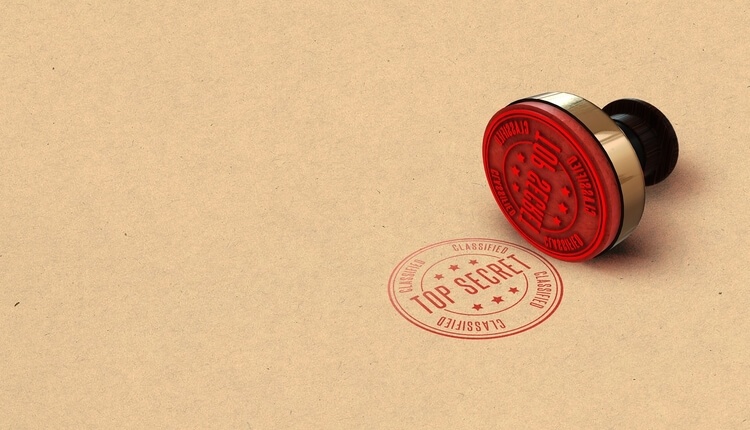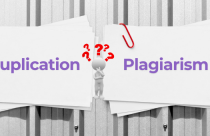Why Confidentiality Is Crucial in Grant Proposals

Science is expensive. Materials, equipment, lab costs and staffing all add up. While businesses might be able to fund all their own research, this is almost never true for the academic institutions. Instead, many researchers have had to spend a lot of time seeking out grant funding.
Government agencies, research organisations and charities are all important sources of grant funding. However, all of these receive far more grant proposals than they can possibly fund. This means research funding is a highly competitive area. So, to get the best chance of funding, researchers do everything they can to make sure their grant applications are successful.
Why is Confidentiality Important?
Grant proposals are normally based on new, exciting research ideas. If you are a researcher yourself, you will know how much hard work goes into preparing a proposal. One of the main reasons for keeping grant applications confidential is to prevent the ideas being stolen, or copied, by other researchers.
Other stages of the grant process are also often confidential. For example, the funding agencies do not disclose the names of grant reviewers. This ensures a free unbiased opinion.
Keeping Grant Proposals Confidential
Most funding agencies try hard to maintain confidentiality. They generally have clear rules and guidelines for grant reviewers and funding agency staff. For example, grant applicants are not normally told the names of reviewers, or any scores that might be given by a review panel. This helps to ensure that the grant review process is as fair and impartial as possible.
Sometimes, however, someone fails to follow the rules. In 2017, the US National Institutes of Health (NIH), admitted that there had been a problem with the confidentiality of some grant proposals. This led to 60 grant proposals being re-evaluated. The NIH has not said exactly what the problems were. However, according to Richard Nakamura, Director of the NIH’s Center for Scientific Review, “there was an attempt to influence the outcome of the review.”
What can funding agencies do if confidentiality is breached? In the case of the NIH, the agency will consider banning those who break the rules from receiving government funding. Overall, the NIH has decided to be more assertive in tackling problems with confidentiality.
The NIH is also trying to educate both applicants and reviewers about its confidentiality rules.
How Can Reviewers and Applicants Maintain Confidentiality?
Let us imagine that a funding agency approached you to review a grant application. Perhaps the application is from a researcher in your field who you know well. Is it ok to discuss the review with your colleague?
The answer is, almost always, no. Maintaining confidentiality during the peer review process is crucial. This allows free exchange of ideas and opinions, and protects sensitive information.
Reviewers should always check the guidelines and rules of the funding agency. If in doubt, contact the person managing the review. If you do need to talk to someone else about the review, make sure you have cleared it with the funding agency first. There might be particular steps you need to follow, such as getting your colleague to sign a confidentiality agreement.
Rules of Institutions like NIH to Maintain Confidentiality
As an example, the NIH has a number of rules for reviewers. Grant reviewers must not:
- Share proposals or meeting notes with anyone who is not a part of the peer review process.
- Reveal any of the discussion of proposals that takes place during the review process.
- Give anyone outside the review process access to the NIH computer systems or meetings.
- Use any information from a proposal or the review process for their own personal benefit.
- Participate in the review process without signing a confidentiality agreement.
Other major international funding agencies have similar guidelines. For example, the UK’s Wellcome Trust says that confidentiality allows reviewers to comment freely. Reviewers are also expected to inform Wellcome Trust staff if they are contacted by applicants. In the US, the National Science Foundation (NSF) has a detailed confidentiality statement. This makes clear that reviewers must not share any material from the proposal with anyone, including the reviewer’s students or research assistants.
So, what about applicants? The NIH says that applicants must not contact reviewers about the proposal, or try to access any information held by the NIH about their application. Applicants should inform the NIH if they are contacted by reviewers outside of the official NIH systems.
Breaking Confidentiality can Lead to Plagiarism
Breaking the confidentiality of a grant proposal can have serious consequences. Taking text or data from someone else’s grant proposal and using it in your own work is clearly plagiarism. According to the NSF, reports of plagiarism and false data in grant proposal have more than tripled in the last ten years.
Committing plagiarism in this way can destroy the career of the person responsible, once caught. Also, such problems can damage the reputation of the funding agency and even harm public trust in the scientific community.
It is important for researchers to understand that copying text or data from someone else’s grant proposal is just as serious as, for example, plagiarising a scientific paper.
Why Should Grant Proposals Stay Confidential?
In my opinion, confidentiality is crucial in grant proposals. For the applicant, confidentiality protects their hard work – their ideas, their research, and their experience. For the reviewer, maintaining confidentiality ensures the integrity of the review process. By keeping reviews confidential, reviewers are able to give their opinion freely, allowing them to be completely honest. This ensures that funding – which often comes from the public, via government or charity – is spent in the best possible way. It also helps to prevent cases of research misconduct and plagiarism.
What do you think? How important is confidentiality in grant proposals? Do you have experience of the issue, either as a reviewer or as an applicant – or both? Share your thoughts in the comments below.









